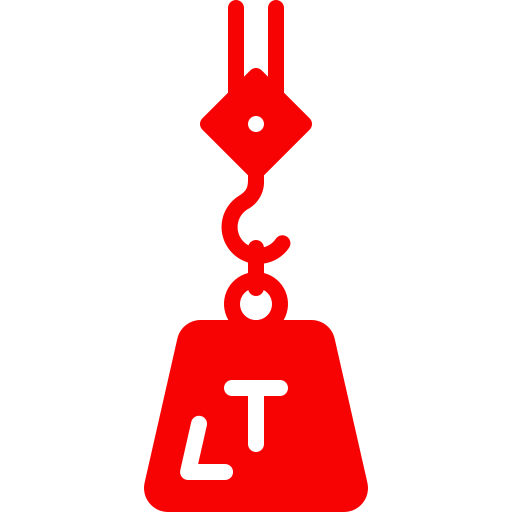overview
SRI LANKA, A Compelling Destination for Investment
Sri Lanka, a small yet remarkably diverse island nation nestled in the heart of the Indian Ocean, is teeming with untapped potential. Its strategic location along key shipping routes positions it as a vital player in global trade, while its wealth of natural resources offers ample opportunities for sustainable development. The island is home to a population of nimble, intelligent learners and skilled makers who have fostered a rich agricultural civilization for nearly 3,000 years, mastering irrigation techniques that have stood the test of time.
As sea travel and cross-border trade evolved, Sri Lanka—historically known as Taprobane—emerged as a prominent trading hub, celebrated for its luxurious goods and as a cultural crossroads where Eastern and Western influences converge. This unique blend has shaped its identity and has been instrumental in developing a vibrant economy.
By the early 15th century, Sri Lanka had already built a legacy steeped in trade. Merchants from the East and West flocked to its shores, drawn by the allure of precious gemstones, fragrant spices, exquisitely carved ivory, and a wealth of exotic fauna. The island's strategic placement along the ancient Silk Road not only facilitated trade but also nurtured social patterns that encouraged financially beneficial relationships with global partners. This rich tapestry of connections laid the groundwork for a culturally diverse society, where sailors and traders from ancient Africa, Eastern Asia, China, and Greece mingled, sharing ideas, beliefs, and knowledge.
Even after gaining independence in 1949, Sri Lanka continued to forge its own path as a pioneer in the region. By implementing liberal and market-oriented economic policies as early as 1977, the nation positioned itself as a forward-thinking player in the global economy, embracing modernization while honoring its rich cultural heritage.
Today, Sri Lanka is internationally recognized for its high-quality Ceylon tea, aromatic Ceylon spices, and stunning Ceylon blue sapphires. It has also established itself as one of the world’s premier tourist destinations, attracting visitors to its pristine beaches, lush landscapes, and vibrant cultural heritage. However, the country’s potential reaches far beyond these exports. It has emerged as a leader in the design and manufacture of ethical and sustainable apparel, catering to the growing demand for responsible fashion among global brands. Additionally, Sri Lanka is increasingly recognized as a rising destination for knowledge services outsourcing, leveraging its skilled workforce and technological advancements.
The Colombo Port serves as one of the busiest transshipment and entrepôt hubs in the region, facilitating the movement of goods across borders. Meanwhile, the Magampura Port in Hambantota has quickly become an essential transshipment center for vehicle exporters from Eastern Asia, capitalizing on free trade agreements that Sri Lanka has established with several South Asian and African countries. This strategic investment in port infrastructure not only boosts trade but also enhances regional connectivity.
Moreover, Sri Lanka is making significant inroads into the global non-metal mineral resource markets, offering an array of value-added products and raw materials, including graphene derived from the world’s highest quality graphite. This innovation positions Sri Lanka as a key player in emerging industries, where advanced materials are increasingly in demand.
The country is also expanding its footprint in the global knowledge processing industry, providing sophisticated ICT solutions and business process management services to major corporations worldwide. This growing sector showcases Sri Lanka's adaptability and commitment to harnessing technology for economic advancement.
In recent years, many leading global brands and organizations have recognized the value of collaborating with Sri Lankan counterparts, sourcing products and services that align with their ethical and quality standards. This trend reflects a broader shift towards responsible sourcing and sustainable business practices, underscoring the importance of ethical production processes in today’s global marketplace.
As a middle-income country, Sri Lanka is experiencing robust economic growth, with a healthy GDP annual growth rate. Exports account for nearly 22% of GDP, highlighting the country's active role in international trade. The Sri Lanka Export Development Board (SLEDB), the primary trade promotion and facilitation organization, is dedicated to expanding the nation’s export market to a target of USD 28 billion. By fostering collaboration among 600 public and private sector stakeholders, the SLEDB aims to unlock new opportunities for Sri Lankan products and services in global markets.
In conclusion, Sri Lanka stands at a pivotal moment in its development journey. With its rich cultural heritage, strategic location, and innovative spirit, the island is poised to embrace a future filled with promise, further establishing itself as a key player on the global stage.
verticals
KEY PRODUCTS AND SERVICES
TEA RUBBER & RUBBER BASED PRODUCTS APPAREL & TEXTILES SPICES, ESSENTIAL OILS & OLEORESINS FOOD, FEED & BEVERAGES DIAMONDS, GEMS & JEWELLERY BOAT AND SHIP BUILDING ICT BPM TOURISM LOGISTICS ELECTRICAL & ELECTRONICS
TEA




Celebrated as the finest in the world, Ceylon Tea boasts a unique flavor, aroma, and freshness that distinguish it from other teas. Represented by the iconic Lion logo and the ‘Ceylon Tea’ trademark, this premium product guarantees quality and authenticity, showcasing its Sri Lankan heritage.
Ceylon Tea is meticulously handpicked by skilled tea pluckers and primarily produced using traditional orthodox and artisanal methods. This attention to detail ensures that each leaf is of the highest quality. Furthermore, it is the freshest tea available on the global market, expertly packed within three weeks of harvesting to preserve its exceptional flavor and aroma.
Notably, Ceylon Tea is recognized as the world's first Ozone Friendly Tea, setting a standard for sustainability by avoiding the use of Methyl-Bromide during packaging and shipping. This commitment to eco-friendly practices reflects Sri Lanka’s dedication to producing high-quality tea while protecting the environment.
Rubber & Rubber Based Products




Sri Lanka is one of the world’s leading producers of natural rubber, serving as the cradle of the rubber industry that has transformed various sectors globally. Renowned for its high-quality natural rubber latex products, Sri Lankan manufacturers and exporters excel in sustainable production practices, focusing on niche markets.
The country specializes in creating a diverse range of rubber products, including solid tyres, sole crepe for footwear, and premium surgical gloves, all tailored for the global market. This commitment to quality and sustainability positions Sri Lanka as a key player in the international rubber industry, meeting the demands of various industries while prioritizing environmentally responsible practices.
Coconut & Coconut-Based Products



Sri Lanka, with its culture intricately linked to the coconut tree and a climate that supports year-round harvesting, is the fourth-largest exporter of coconut products in the world. Among its most sought-after exports are desiccated coconut, virgin coconut oil, and coconut water. Additionally, the country produces bristle fibre products using the traditional ‘Drum’ extraction method, along with activated carbon made from coconut shells, both of which are increasingly in demand on the global market.
Apparel & Textiles




Over the years, Sri Lankan apparel manufacturers and suppliers have built a strong global reputation for their ethical production of high-quality garments, earning the trust of iconic fashion brands worldwide.
The apparel and textile manufacturing industry stands as the most significant and dynamic contributor to Sri Lanka’s economy. Fully privately owned and operated, these manufacturers have adeptly seized international market opportunities, evolving beyond traditional exports and tailoring. They now offer sophisticated and innovative solutions through fashion BPO services, as well as dedicated research and development centers.
As a result, Sri Lankan apparel has redefined industry standards and established robust connections with global superbrands in Europe and the USA, showcasing the island's commitment to quality, sustainability, and creativity in fashion.



Sri Lanka is the sole supplier of true cinnamon, a status that has made it a renowned destination for the finest quality spices throughout history. In the 15th century, global superpowers fought for trading rights to Ceylon cinnamon and pepper, solidifying Ceylon spices as the flavors that launched a thousand ships.
Today, Sri Lanka stands as a leading exporter of Ceylon cinnamon, Ceylon pepper, Ceylon cloves, Ceylon nutmeg, and Ceylon cardamom, all recognized under the geographical indication of Ceylon Spices. These spices are celebrated for their distinctive aroma and flavor, which are intricately shaped by the island's unique terroir.
Additionally, spice manufacturers in Sri Lanka produce a variety of essential oils and oleoresins derived from the country's spices, further enhancing its reputation as a global hub for high-quality spice products.



As global consumers increasingly embrace healthy, organic, and vegan diets, Sri Lankan processed food manufacturers are innovating by blending traditional local ingredients with advanced food processing methods. This approach results in food and beverage products that are both delicious and nutritious.
In contrast to conventional processed foods that are often high in sugar, salt, and fat, Sri Lankan offerings primarily focus on natural fruits, vegetables, and gluten-free cereals like rice and millet. This commitment to wholesome ingredients reflects a growing demand for healthier alternatives.
The Sri Lankan processed food and beverage sector encompasses a diverse array of products, including coconut-based items, vegetable and fruit concentrates, juices, semi-cooked meals, confectionery, and bakery goods. Additionally, the sector produces ready-to-serve meals, a variety of beverages, animal feed, and preparations made from cereals and flour, showcasing the rich culinary heritage and nutritional potential of the island's agricultural resources.



As one of the world’s most reliable suppliers of top-quality Ceylon sapphires and seventy-five other gemstone varieties, Sri Lanka holds a vital position in the global gem and jewellery industry, despite its modest size.
Often referred to as the mythical Tarshish—the legendary island renowned for its invaluable gemstones—Sri Lanka has a rich history as a source of celebrated gemstones, pearls, and luxury jewellery. This long-standing association with the international gem and jewellery trade underscores its significance in the market.
In addition to its renowned Ceylon sapphires, Sri Lanka is celebrated for its exquisite rubies and moonstones. The country’s skilled lapidaries excel at faceting gemstones and diamonds, enhancing their brilliance and luster to create stunning pieces for discerning buyers around the world.



Sri Lanka’s strategic geographical position at a key marine crossroads in the Indian Ocean, coupled with its rapidly expanding technological capabilities in boat building and dry dock services, has fostered a thriving ship and boat building industry.
Today, the country operates as a comprehensive maritime service hub, offering an extensive range of services that include assembly, refueling, refitting, and repair for various types of boats, as well as seagoing and inland watercraft. This integration of services positions Sri Lanka as a vital player in the maritime industry, catering to both local and international markets while capitalizing on its potential for nautical tourism.



Sri Lanka, known as the island of ingenuity, has a long-standing reputation for innovation, creativity, and problem-solving. From crafting intricate engineering solutions and constructing expansive tanks and towering stupas to developing scalable technologies, Sri Lankans have historically been at the forefront of addressing complex challenges with simple, effective solutions.
Today, this inherent ingenuity is prominently displayed in the country’s cutting-edge ICT sector. Sri Lankan ICT innovations power vital international stock markets, telecommunication networks, and transportation systems across Europe and the UK. As the second-largest export earner for the nation, the ICT industry serves a diverse array of sectors, with over 500 companies operating across various industries, including communication, apparel and textiles, banking, financial services and insurance, healthcare, manufacturing, media, retail, transportation, travel, and leisure.
The industry is committed to adhering to global labor and environmental standards, ensuring sustainable practices throughout its operations. A highly skilled talent pool, coupled with cost-effective operational advantages—such as affordable real estate, competitive wage scales, and a low cost of living—positions Sri Lanka’s ICT industry as one of the most profitable sectors in the country today.



Sri Lanka stands out among Asian competitors thanks to its highly skilled talent pool, cost-effective operational environment, and sophisticated IT and telecommunication infrastructure.
Renowned as a premier destination for offshore services, Sri Lanka excels in customer service management, finance and accounting, legal, insurance, banking, telecommunications, and various other sectors. The National Outsourcing Association (NOA) in the UK has repeatedly recognized Sri Lanka as the “Offshore Destination of the Year,” reflecting the country’s growing reputation in the global market.
In addition to its accolades, Sri Lanka's commitment to compliance with global labor and environmental standards further enhances its appeal as a top choice for Business Process Management outsourcing. This combination of factors positions Sri Lanka as an exceptional partner for businesses seeking reliable and efficient outsourcing solutions.



Nestled in the Indian Ocean in South Asia, the tropical island nation of Sri Lanka boasts a history that stretches back to the dawn of time. Here, the essence of Buddhism thrives, and the natural beauty remains rich and unspoiled.
Few destinations in the world offer such a remarkable blend of breathtaking landscapes, pristine beaches, captivating cultural heritage, and unique experiences within such a compact area. Spanning just 65,610 square kilometers, Sri Lanka is home to eight UNESCO World Heritage Sites, 1,330 kilometers of coastline—much of it featuring untouched beaches—15 national parks teeming with diverse wildlife, nearly 500,000 acres of lush tea estates, 250 acres of stunning botanical gardens, 350 picturesque waterfalls, and 25,000 water bodies. This is all set against a cultural backdrop that extends back over 2,500 years, making Sri Lanka a truly extraordinary destination for travelers seeking both adventure and tranquility.




Sri Lanka has emerged as a thriving logistics hub in the South Asian region, thanks to its strategic geographical location near key emerging markets and international shipping routes that connect Asia to Europe. This advantageous positioning not only enhances the country's logistics sector but also establishes Sri Lanka as a gateway to the Indian subcontinent, home to approximately 1.3 billion people.
Given its status as a global center of innovation and production excellence, Sri Lanka offers a unique opportunity for further development into a world-class logistics hub. This development aims to seamlessly connect global supply chains with a new generation of consumers in some of the fastest-growing economies worldwide. With its robust infrastructure and strategic advantages, Sri Lanka is poised to play a pivotal role in the global logistics landscape.



As technology rapidly evolves and market conditions shift, the industry must enhance its ability to anticipate, prepare for, and respond to these changing dynamics with agility. Succeeding in unique global market spaces is essential for sustaining growth and gaining a competitive edge.
The Sri Lankan electronic and electrical industry is establishing itself as a vibrant, dynamic exporter that embraces change and confronts the challenges of evolving global markets with resilience—true to the spirit of Sri Lanka.
Renowned as a "Design to Delivery Destination" in the electronic and electrical sector, Sri Lanka is a center of excellence for electronics design and development. The industry enthusiastically adopts emerging technologies, including IoT, robotics, biomedical applications, analytics, and advanced research and development. As Sri Lanka progressively integrates into the global value-added supply chain, it offers a range of cutting-edge products and services that align with the latest trends in digitization, automation, miniaturization, and the development of sustainable green energy solutions.
